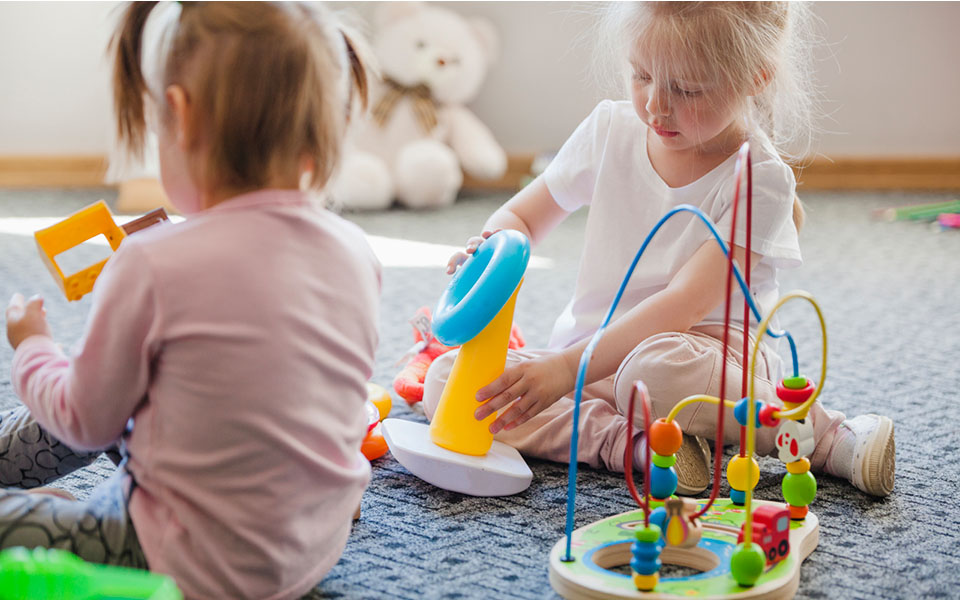
Sensory play is more than just a messy and enjoyable activity for children; it’s a vital tool that enhances their development.
From stimulating their senses to encouraging cognitive growth, sensory play lays the foundation for a lifetime of learning.
So what are the benefits of sensory tools for kids?
This article explores seven ways sensory play can benefit your child. It also uncovers engaging sensory activities tailored to benefit one-year-olds. These activities can not only captivate their imagination but also nurture their holistic development.
Ready, set, go!
Engaging the senses is a cornerstone of early childhood development, and sensory play excels at this.
Researchers have found that children learn best through structured play. Simple activities like finger painting, squishing playdough, or exploring various textures provide a multisensory experience that helps your child understand the world around them.
As they touch, smell, see, and sometimes even taste, they build neural connections that are crucial to their cognitive growth.
Nurturing curiosity is at the heart of sensory play’s magic. Encouraging your little one to explore different materials, shapes, and sensations sparks their innate sense of wonder.
But how does sensory exploration help toddlers?
Whether it’s sinking their hands into a bowl of rice or pouring water from one container to another, these simple yet captivating activities kindle their curiosity, encouraging them to ask questions and seek answers.
Sensory exploration is an effective tool for enhancing motor skills, both fine and gross. Activities like stacking blocks, Busy Buttons, pouring water, or tearing paper challenge your child’s hand-eye coordination, balance, and dexterity.
These activities might seem like play, but they’re actually integral to the development of motor skills that will serve your child well as they grow and explore the world around them.
Language development also gets a boost from Montessori-based sensory play. As your child interacts with different textures, objects, and experiences, they’re exposed to a wide vocabulary of rich, descriptive words.
Describing the sensations they’re feeling or the materials they’re handling helps expand their language skills and encourages meaningful communication.
Sensory play isn’t limited to solo exploration; it’s a wonderful opportunity for social interaction too.
Group sensory activities introduce children to sharing, taking turns, and collaborating with their peers. These interactions foster important social skills like empathy, communication, and cooperation from an early age.
Sensory play also ecourages emotional intelligence. Engaging with sensory materials provides a safe space for children to express their feelings and learn to regulate their emotions.
Whether it’s squeezing a stress ball to release tension or feeling the calming effects of kinetic sand, these activities empower them to understand and manage their emotions.
Sensory play isn’t just about development; it’s about creating cherished memories too. The joy you share of squishing, exploring, and discovering alongside your child is a bonding experience.
These activities not only ignite kids’ senses but also provide you both with quality bonding time that can be treasured for years to come.
Finding engaging sensory activities for one-year-olds can be challenging. But incorporating sensory exploration into your child’s daily routine can have a profound impact on their overall development.
From igniting their curiosity to refining their motor skills, sensory exploration is a captivating and effective way to nurture various aspects of their growth journey.
Embrace these sensory activities tailored for one-year-olds, and watch your child thrive in a world of sensory wonder, curiosity, and discovery.